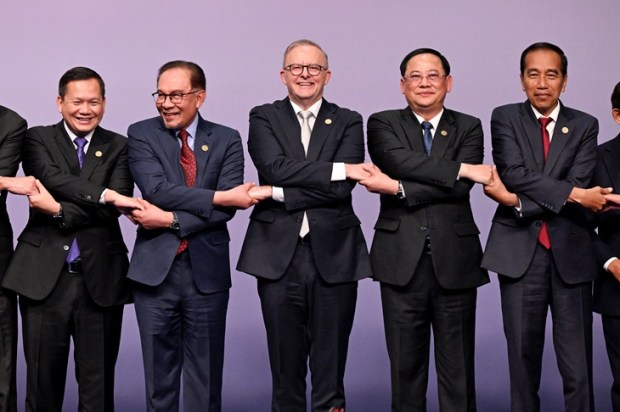In a recent Flat White item, Where is Australia’s conservative intellectual movement?, Jonathan Cole and Simon Kennedy argued that Australia, in contrast to both Britain and United States, does not have (and indeed has ‘never seen’) ‘a robust and energetic’ community of conservative thinkers. Instead, we have ‘eccentric and maverick right-wing commentators’ who tend to ‘carp and pillory from the sidelines’. This, the authors suggested, is a recipe for continued irrelevance. If conservatives are to shape our future, if they are to build both influence and supporters, they must, we were told, ‘win the hearts and minds’ of the next generation ‘reared in the world of ideas.’ Conservatives, they conclude, need their own Phillip Adams.
While Cole and Kennedy may be a little glib (and unfair), they are right to issue this challenge. Ideas and arguments do count. Hearts and minds can be changed. History shows that even the most devoutly held progressive orthodoxy will crumble in the face of overreach (progressivism’s fatal flaw) and practical failure. The problem with their argument, however, is that intellectuals tend (with very few exceptions) to be the last to see these inflexion points. Blinded by their abstractions and theories (and insulated from their pernicious consequences), they cling to the latest revolutionary fad until the bitter end. When common-sense prevails and utopian ambitions scaled back, as they invariably are, they follow rather than lead.
We saw this with Marxism in the 20th century. This ideology, which for its true believers amounted to a secular religion, was never embraced by the majority of Australian workers. Indeed, Lenin himself dismissed the Australian Labor Party as hopelessly bourgeois: more interested in obtaining practical gains for the proletariat than overthrowing the capitalist system. By the mid 1930s, the vast majority of Soviet citizens had seen the light. Stalin’s collectivisation of agriculture, costing millions of lives, put paid to any notion of a workers’ paradise. Yet at that very time, and for decades later, Western intellectuals (including George Bernard Shaw and Sidney and Beatrice Webb) sung the praises of the Soviet regime. Marxist theory, which had become a bad joke within the Eastern Bloc by the 1970s, retained its hold on hearts and minds in Western universities. That love affair continued until the Berlin Wall was reduced to rubble, and still exerts a certain influence.
If there is an intellectual vanguard in history (in the sense of scaling back the ambitions of zealots), it is not establishment intellectuals. It is those on the periphery, with a certain distance and perspective from the action. They are in the suburbs and regions and at the margins of our educational and cultural life. This is what we are seeing today. Those counselling caution on radical climate change action, those expressing misgivings about the excesses of identity politics, are not in elite university chancelleries or corporate board rooms, but mine workers, small businesses and suburban parents. Academics are involved, like Peter Ridd, but they are in a very small minority. These critiques, moreover, are typically reasoned and thoughtful. Yes, a minority of public commentators might ‘carp and pillory’ from the sidelines, but in focussing on these, the authors lose sight of the legion of quiet sceptics.
In a similar manner, the authors are critical of the substance of conservative arguments. They comment that their grounding in ‘common sense pragmatism’, while a virtue of conservatism, keeps it apart from the ‘world of ideas’. Until conservatives overcome their hostility ‘to sophisticates and their theories’, they suggest, their influence will be limited. If they mean that conservatives should be respectful of their opponents when making their case, I would agree. If conservatives want respect and a fair hearing for their views, they must be prepared to reciprocate. But if they are implying that, in seeking to court progressive opinion, conservatives should detach their ideas from their common-sense roots, I would caution against that.
I do not deny the influence of intellectuals and ideas. But when considering this question, we need to distinguish between thinkers who challenge orthodoxies and those who devote their energies to upholding, popularising and defending them. The former struggle alone and under difficult circumstances. They are genuinely creative, but are dismissed as eccentrics by their peers. They lack both rich patrons and an adoring public. Respect is earned, if at all, much later in life or posthumously. George Orwell, Frederick Hayek and Winston Churchill (at least during the inter-war period when he campaigned against appeasing Nazi Germany) are, for me, exemplars of this group. True iconoclasts can be found along the political spectrum, but have in common a preparedness to challenge contemporary Groupthink.
Those who publicise orthodoxies, by and large, enjoy easier lives. They do not break new ground, but deal in the prejudices of the day. They are prolific. They do not want for commissions or sinecures given their endorsement of ‘acceptable’ views. Some of them gain a large, adoring following. But when fashions change, they suffer a rapid fall from grace.
For Joseph Schumpeter, those rock stars of the enlightenment, Voltaire and Rousseau, were exemplars of this kind. As he put it, Voltaire’s ‘very superficiality of mind’ allowed him to write about ‘everything from religion to Newtonian Optics’. This, together with (among other things) his ‘unerring instinct for and wholesale acceptance of the humours of his time’ allowed this ‘uncritical critic and mediocre poet and historian to fascinate and sell’. Phillip Adams, who the authors see as the epitome of thought-leadership, is a talented broadcaster and writer, but even he would agree, I suspect, that he is more publicist than creator.
For all this, Cole and Kennedy are right to issue their challenge. But while they complain we have no conservative movement, my sense is that it is right there before our very eyes. It may lack a dedicated political party, mainstream institutional presence and large scale financial support, but its influence is nevertheless being felt. Conservatives have always struggled to win over intellectuals in capitalist democracies. This does not mean that they have lost the battle for ideas.
Got something to add? Join the discussion and comment below.
Get 10 issues for just $10
Subscribe to The Spectator Australia today for the next 10 magazine issues, plus full online access, for just $10.


























Comments
Don't miss out
Join the conversation with other Spectator Australia readers. Subscribe to leave a comment.
SUBSCRIBEAlready a subscriber? Log in